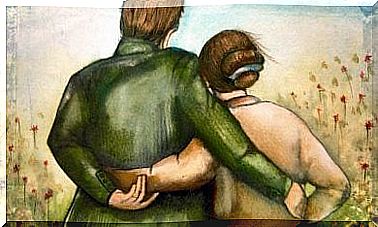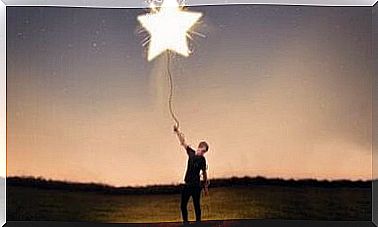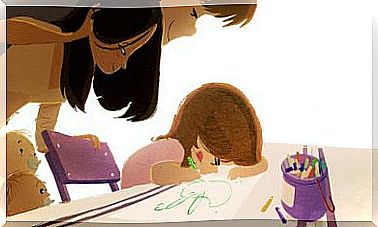Being Strong Is Not Always Possible, And That’s Fine

Being strong is not always possible; a natural fact, healthy from a psychological point of view. Mental health has little to do with a straight line without slope that glides through happiness infinitely, without end or beginning. Experiencing sadness, grief, anguish and grief is part of that emotional range inherent in the heartbeat itself.
Well-being appears and is maintained when we make the right decisions in a psychological condition imposed by our own dynamism: the fluctuation of our emotional state.
Thus, when we demand that others be strong under any circumstance, we are sharpening a knife and bringing it close to their skin. When we keep the same false obligation within the drawer of imperatives to comply with, we sharpen that same blade for ourselves.
Allowing ourselves to be vulnerable is a risk, but also a necessity. How could we love without this permission? Could we create intimacy and enjoy it if it were otherwise?
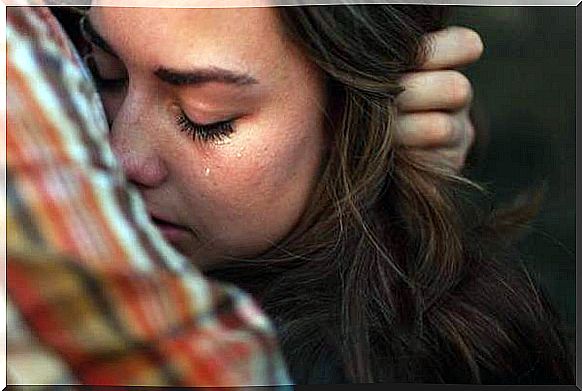
Being strong is not always possible: the lesson we should have learned long ago
In therapy there are people who say they can no more, who think that their value is zero or little because they have identified a limit to their strength. In their minds, strong is the one who does not ask for a quarter or a truce is proposed even if there are no soldiers left. Thus, disappointments and pain accumulate; fatigue appears, then exhaustion.
The only thing that seems to matter is keep moving forward. Add in what for us is to move forward; We do it by manipulating ourselves, telling ourselves that nothing is wrong, that nothing hurts, that we are going to be able to handle everything because we have no choice but to be strong that way. Until sooner or later it happens, the anxiety disorder or the depressive picture arises.
The opposite of being strong is not being “weak”
We know that language builds and defines realities. However, from a psychological level there are popular terms that can be really harmful. Words have been instilled in us over the years that have been wearing away our human potential and, worst of all, mental health.
Terms such as “strength, audacity, resolution, courage” are a small example of those traits that we should (according to many) install in our character as someone who downloads a mobile application. It’s a mistake.
Being strong is not always possible and when we cannot be strong, we are not showing weakness. Because the opposite of strong in the world of psychology is not weak, it is being human.
If we constantly strive to be decisive and almost indestructible in emotional matters, what we will be doing is developing intolerance to negative valence emotions, such as sadness, fear or frustration. In this way, when someone is in the midst of adversity and does not know how to react, they perceive themselves as “weak.” All of this will inevitably boycott the fabric of their self-esteem.
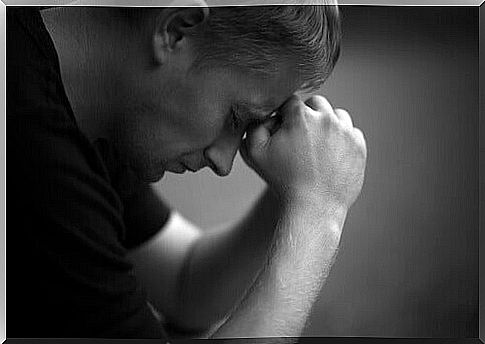
Being strong is not always possible, the key is to allow ourselves to be vulnerable
Being strong is not always possible. There are certain vital circumstances that require a space for sadness, a corner for anguish and a spacious armchair to shed our tears and thoughts. And that this is so is not only understandable, it is necessary. More than being strong, the key is to allow ourselves to be vulnerable.
Vulnerability is not weakness or indisposition. It is allowing us to accept the whole crucible of our emotions and let them emerge at the right time and in the right way. It is not logical to be positive and joyful when faced with a loss.
Feeling despair, sadness, and even anger is normal. And what is required of us in those moments is not strength; it is the ability to accept, understand and manage those states.
Thus, in a study carried out at the University of Manchester in the United Kingdom by Dr. Erik Holman, something interesting is indicated to us that we should consider. When we allow ourselves to be vulnerable and accept our suffering, weakness, anguish or sadness, it is when we start the authentic gear of healing and self-improvement.
Thus, whoever accepts their vulnerability ends up developing an authentic strength or psychological resistance. This last dimension is basically related to the ability to deal effectively with new adverse situations, having obtained vital learning, tools that directly revert to mental health. It is worth keeping in mind.


